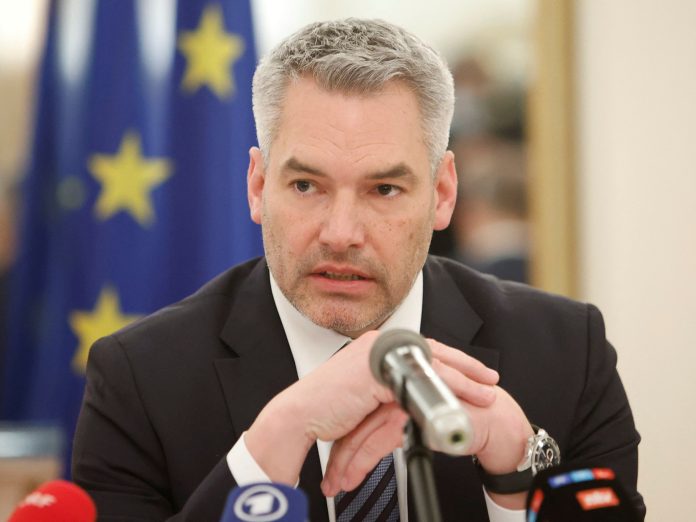Nehammer says his People’s Party would not support measures that it believes would harm the economy or new taxes.
Austrian Chancellor Karl Nehammer has stated that he will step down after discussions between the major centrist parties in the country to form a government without the far-right Freedom Party (FPO) collapsed.
The announcement was made on Saturday following the withdrawal of the liberal Neos party from the negotiations with Nehammer’s conservative People’s Party (OVP) and the Social Democrats (SPO).
“After the termination of the coalition talks, I have decided to resign both as chancellor and party chairman of the People’s Party in the coming days,” he announced.
In a video shared on his social media, Nehammer mentioned the failed negotiations with the center-left despite a mutual interest in countering the rise of the far right.
Nehammer reinforced that his party would not back measures that could negatively impact the economy or introduce new taxes.
He pledged to facilitate a smooth transition and criticized “radicals who offer no solutions to problems but thrive on outlining issues.”
The FPO, a far-right party, achieved its first-ever victory in the parliamentary election in late September by securing nearly 30 percent of the vote.
However, other parties declined to form a coalition with the eurosceptic and Russia-friendly FPO under the leadership of Herbert Kickl, leading President Alexander Van der Bellen to ask Nehammer to form a coalition in late October.
Nehammer’s resignation follows the unsuccessful negotiations with the Neos party.
Neos leader Beate Meinl-Reisinger cited the lack of progress and failure to agree on “fundamental reforms.”
Following the chancellor’s departure, the OVP is expected to convene to discuss potential successors.
The political situation in Austria remains uncertain, with no immediate prospects for a stable government due to ongoing disputes between the parties.
The president may appoint a new leader and an interim government as the parties work towards resolving the deadlock.
The upcoming government in Austria faces the challenge of having to save between 18 to 24 billion euros ($18.5-24.7bn), as estimated by the European Commission.
The country’s economy has been in recession for the past two years, unemployment is on the rise, and its budget deficit stands at 3.7 percent of GDP – exceeding the European Union’s limit of 3 percent.






